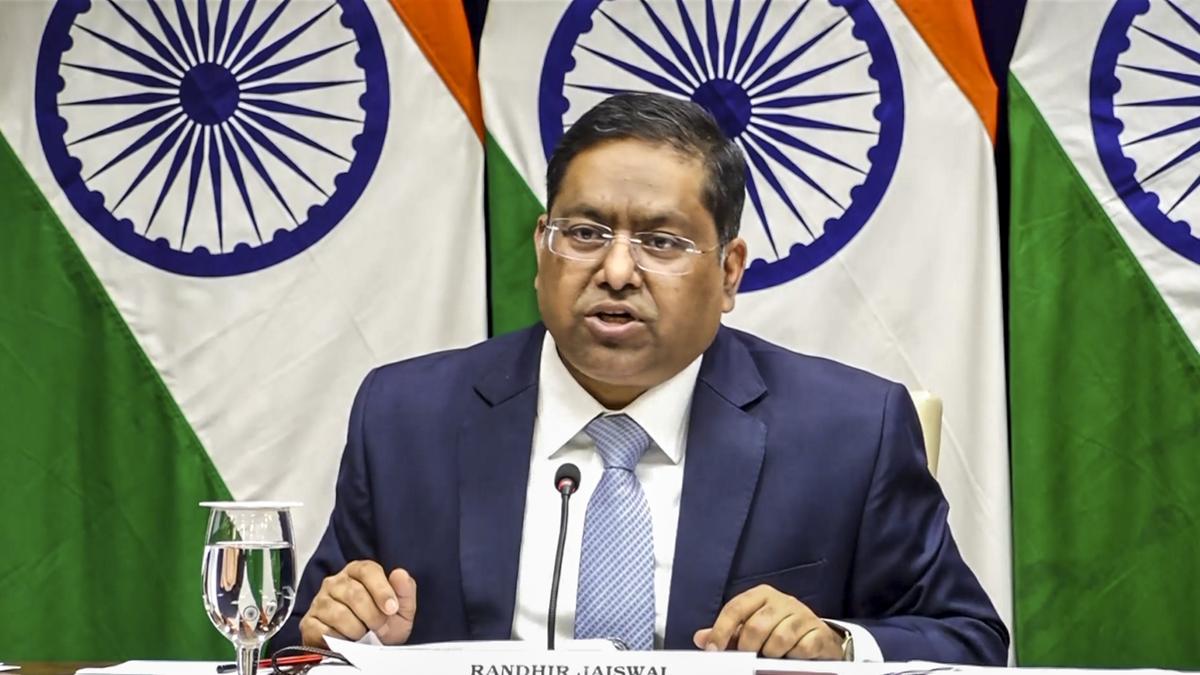 |
|
The recent diplomatic friction between India and Bangladesh highlights the complexities of managing international relations in the digital age. The incident, sparked by a social media post from Bangladesh's interim government student advisor, Mahfuz Alam, underscores the potential for seemingly minor online actions to escalate into significant diplomatic issues. Alam's Facebook post, which depicted a map of Bangladesh incorporating territory claimed by India, triggered a swift and strong response from the Indian Ministry of External Affairs (MEA). The MEA's statement, delivered by spokesperson Randhir Jaiswal, clearly articulated India's disapproval and the seriousness with which it viewed the matter. The prompt and decisive action taken by India demonstrates its commitment to protecting its territorial integrity and maintaining stable bilateral relationships.
The incident raises crucial questions about the role of social media in international relations. In an increasingly interconnected world, where information spreads rapidly and globally, the potential for miscommunication and the misinterpretation of intentions is amplified. Social media platforms, while offering unprecedented opportunities for communication and engagement, also pose significant challenges to traditional diplomatic processes. The Alam incident serves as a stark reminder of the need for caution and responsibility in the use of these platforms, particularly by individuals holding positions of influence within a government. The ease with which information can be disseminated online, combined with the potential for misinterpretations and the rapid spread of misinformation, demands a high level of sensitivity and awareness.
The MEA's call for 'responsible public articulation' reflects a broader concern about the impact of online discourse on interstate relationships. The statement emphasizes the importance of mindful communication, especially in a context characterized by complex historical and political ties between India and Bangladesh. The seemingly innocuous nature of a Facebook post belies its potential to create misunderstandings and damage fragile diplomatic efforts. This incident serves as a case study in the need for clear communication protocols, especially for government officials who utilize social media platforms. The speed at which the controversy unfolded and the promptness of India's response demonstrate the increasing urgency with which governments must address the challenges presented by social media in shaping international relations.
Beyond the immediate diplomatic repercussions, the incident highlights the broader issue of managing information flows in the digital age. The rapid dissemination of information, often without proper context or verification, can contribute to misunderstandings and the exacerbation of existing tensions. The incident underscores the importance of promoting media literacy and critical thinking, empowering individuals to discern accurate information from misinformation or deliberate attempts to misrepresent facts. It also calls for greater awareness of the potential consequences of online actions, particularly for individuals in positions of power and influence. This incident should encourage a more thorough examination of social media policies and protocols within governments to mitigate potential diplomatic risks.
The incident between India and Bangladesh, stemming from a seemingly trivial social media post, ultimately underscores the complex intersection of technology, diplomacy, and international relations. It serves as a critical reminder of the need for responsible online behavior and careful consideration of the potential ramifications of public statements in the digital age. The rapid escalation and immediate response highlight the increasing importance of navigating the digital landscape with caution, diplomacy, and a deep understanding of the potential for online actions to impact international relations. The situation provides valuable lessons for governments worldwide regarding the management of social media and its role in shaping interstate relations.
Source: India ‘strongly protest’ Bangladesh aide Mahfuz Alam social media post
